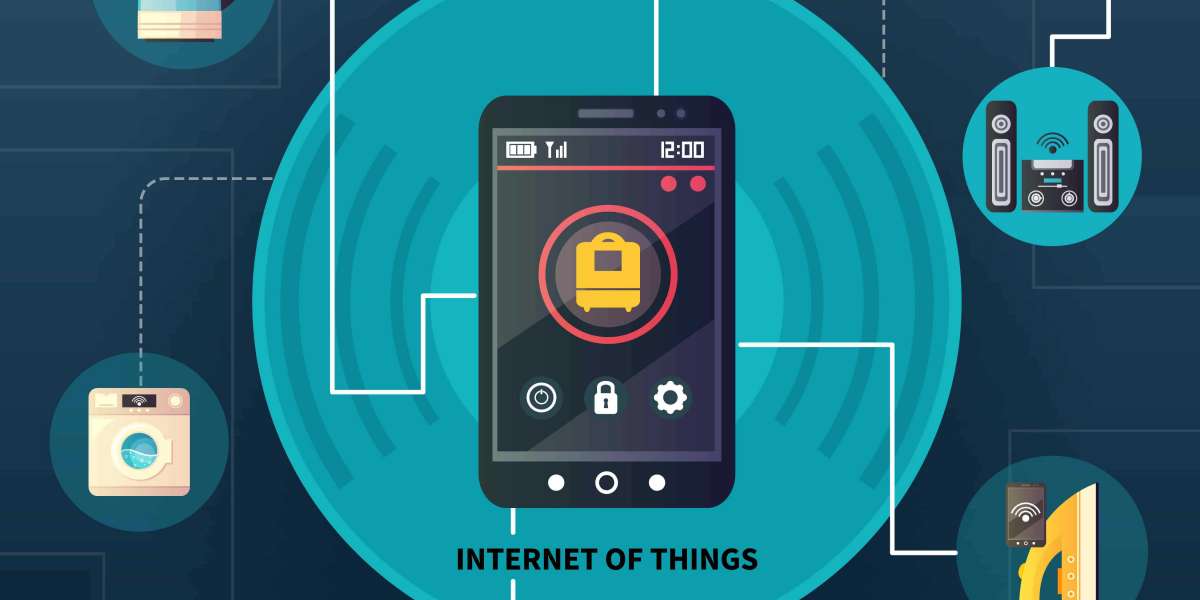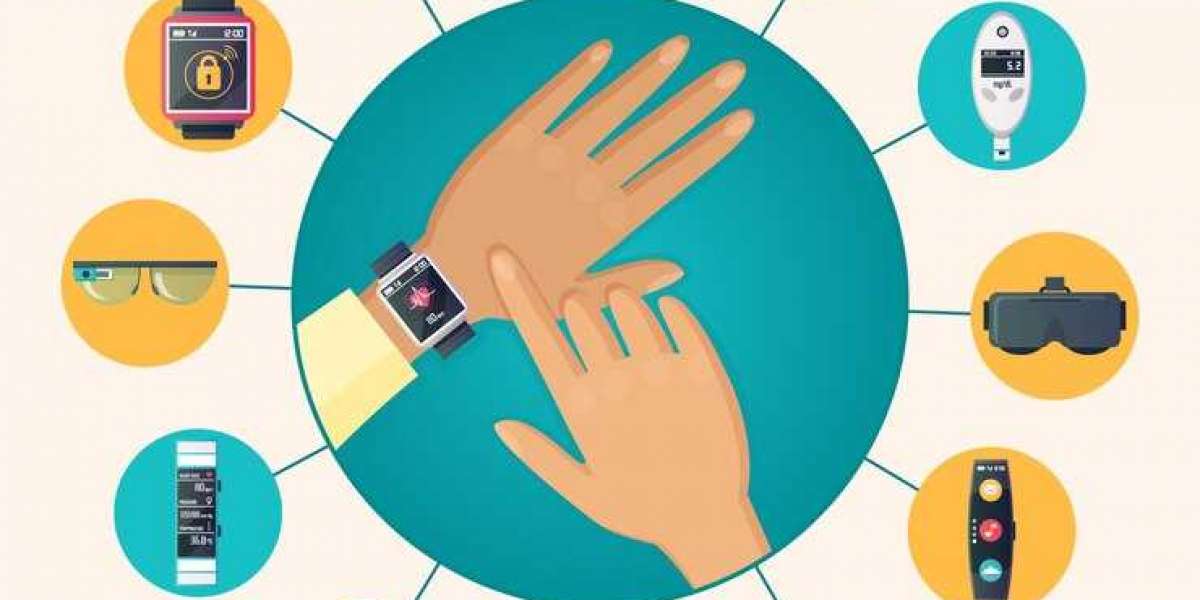Grand View Research reported that the global IoT market in the healthcare sector hit $44.21 billion in 2023 and is expected to grow at a rate of 21% from 2024 to 2030. This significant growth underscores the anticipated influence of IoT on healthcare.
The healthcare sector greatly benefits from IoT, which revolutionizes treatment quality and hospital operations through enhanced connectivity and instant data exchange capabilities. The future of IoT in healthcare promises to deliver personalized care, advanced monitoring, and optimized medical processes.
Let's delve into how the IoT is influencing the future of healthcare applications and the significant effects it is creating throughout the sector.
What is IoT in Healthcare?
In healthcare, IoT includes a network of devices like wearables, sensors, etc. These devices collect and exchange data in real-time. They streamline operations by offering immediate health updates and promoting smooth interaction among patients, doctors, and systems.
The increasing need for healthcare and wearable tech is paving the way for the future of IoT in the healthcare industry by introducing advancements in fields like analytics and AI-driven diagnostics, which strive to develop an intelligent and interconnected healthcare system.
The Transformative Impact of IoT on Healthcare Applications
1. Remote Patient Monitoring (RPM)
IoT devices, such as glucose monitors and heart rate trackers, can remotely track patients' data. These devices continuously send data to healthcare professionals.
During heart-related crises or emergencies of that nature, for instance, devices can promptly inform experts of any irregularities detected; this, in turn, reduces the time taken for a response, ultimately saving lives. Furthermore, remote monitoring helps reduce hospital travel, offering more convenience. This is very helpful for people residing in rural areas.
2. Data-Driven Decision-Making
The patient data collected by IoT devices is sent to cloud platforms for analysis to uncover insights. Working with an IoT development company allows healthcare professionals to create applications that effectively handle this information. Such solutions empower physicians to base their decisions on data insights and enhance the precision of diagnoses and treatment results.
3. Enhancing Hospital Efficiency
Hospitals can struggle to manage resources and operations efficiently. IoT-enabled devices such as smart inventory systems and equipment trackers have the potential to address these challenges effectively. For instance, IoT sensors can track wheelchair or defibrillator availability and guarantee that they are readily accessible when required.
In addition, it enhances hospital workflows by integrating IoT into tasks like appointment scheduling and patient admissions to reduce errors caused by manual processes.
4. Smart Medication Management
IoT has made medication management more efficient by keeping track of patients and reminding them to take their drugs promptly as scheduled. For instance, Pill dispensers can send reminders for medication timings or notify caregivers if a dose is missed. This feature proves helpful for senior patients or individuals with treatment plans by guaranteeing they maintain a steady and precise intake of their medications.
5. IoT-Enabled Predictive Maintenance in Hospitals
Hospitals heavily depend on medical equipment for smooth care provision, and any unexpected malfunctions can significantly disrupt patient treatment processes. IoT plays a key role in maintenance by continuously monitoring the performance of medical equipment in real time. Sensors integrated into devices such as MRI machines and ventilators can identify problems before they escalate into breakdowns.
This proactive strategy helps minimize downtime and enhances safety while streamlining resource allocation within healthcare settings for efficient and reliable operations.
Benefits of IoT in Healthcare Apps
1. Personalized Health Assessments
IoT devices enable patients to manage their well-being by offering in-depth information on their fitness levels, sleep routines, and calorie intake. These customised evaluations assist people in embracing routines and avoiding health problems.
Fitness trackers and smartwatches have become tools for supporting a lifestyle, while connected applications designed by dedicated IoT developers are enhancing the usability and convenience of these devices in a more user-friendly manner.
2. Early Detection of Chronic Conditions
The future of IoT in healthcare rests on its capacity to predict and prevent health issues by monitoring patients with long-term ailments such as diabetes or asthma and notifying caregivers promptly upon detecting any irregularities. This proactive approach helps decrease hospitalizations and enhances patients' well-being.
3. Improved Accessibility
IoT healthcare solutions are expanding access to services for people in underserved areas with limited resources. Integrating monitoring tools and telemedicine platforms driven by IoT allows healthcare providers to offer treatment to patients wherever they are situated. This ensures that everyone has opportunities to access quality medical care.
Overcoming Challenges in IoT Implementation
While IoT in healthcare holds promise for change, some challenges must be addressed.
1. Data Security and Privacy
Healthcare information is confidential, and IoT devices are prone to cyber threats. Encryption methods and secure APIs are crucial for safeguarding data. By choosing to hire IoT developers specializing in cybersecurity measures, healthcare companies can build systems that prioritize preserving data privacy.
2. High Costs of Implementation
Implementing IoT solutions requires a significant investment in devices and infrastructure and their integration. However, the long-term advantages, such as lowering hospital readmissions, often outweigh the costs.
3. Device Interoperability
Not all IoT devices communicate smoothly, which can result in data silos and inefficiencies. Establishing communication protocols and promoting interoperability is important to fully leverage IoT's potential in healthcare.
Why Healthcare Organizations Should Hire IoT Developers
To maximize IoT's capabilities in healthcare settings, healthcare professionals need to work with developers who understand the industry's specific requirements.
Developing User-Centric Apps
A seasoned IoT application development company can design applications with user interfaces that streamline data accessibility for patients and healthcare providers alike. The primary aim of these applications is to improve user experience by making them easy to use and efficient.
Keeping Data Safe and Secure
When organizations hire IoT developers and employ them in their teams, they enable the integration of security protocols, like encryption and multi-factor authentication, to safeguard patient information. This strategy guarantees adherence to regulations and fosters a sense of confidence and reliability among users.
Conclusion
The future of IoT in the healthcare industry is vast and promising. It ranges from monitoring and tailored treatment to operations and sophisticated data analysis systems. With technology adoption, healthcare institutions can transform their care delivery practices.
As challenges like security and interoperability are addressed, adopting IoT healthcare solutions will continue to grow. Collaborating with a trusted IoT development company and hiring IoT developers will be key to staying ahead in this rapidly evolving landscape.
Implement IoT and see the efficiency of your healthcare operations soar, driving better patient outcomes and streamlined processes.
FAQs
- What is IoT in healthcare?
IoT in healthcare refers to connected devices that collect and exchange real-time health data, enabling better patient care and operational efficiency.
- How does IoT improve patient outcomes?
IoT enables remote monitoring, early detection of health issues, and personalized treatments, leading to better patient outcomes.
- What challenges does IoT face in healthcare?
Challenges include data security, high implementation costs, and device interoperability. However, these can be mitigated with proper planning and technology.
- Why should organizations hire IoT developers for healthcare solutions?
Hiring IoT developers ensures secure, user-friendly apps tailored to the healthcare industry’s unique needs, enhancing the overall user experience.
- How will 5G impact the future of IoT in healthcare?
5G connectivity will enable faster data transmission, supporting advanced IoT applications like real-time diagnostics and remote surgeries.







